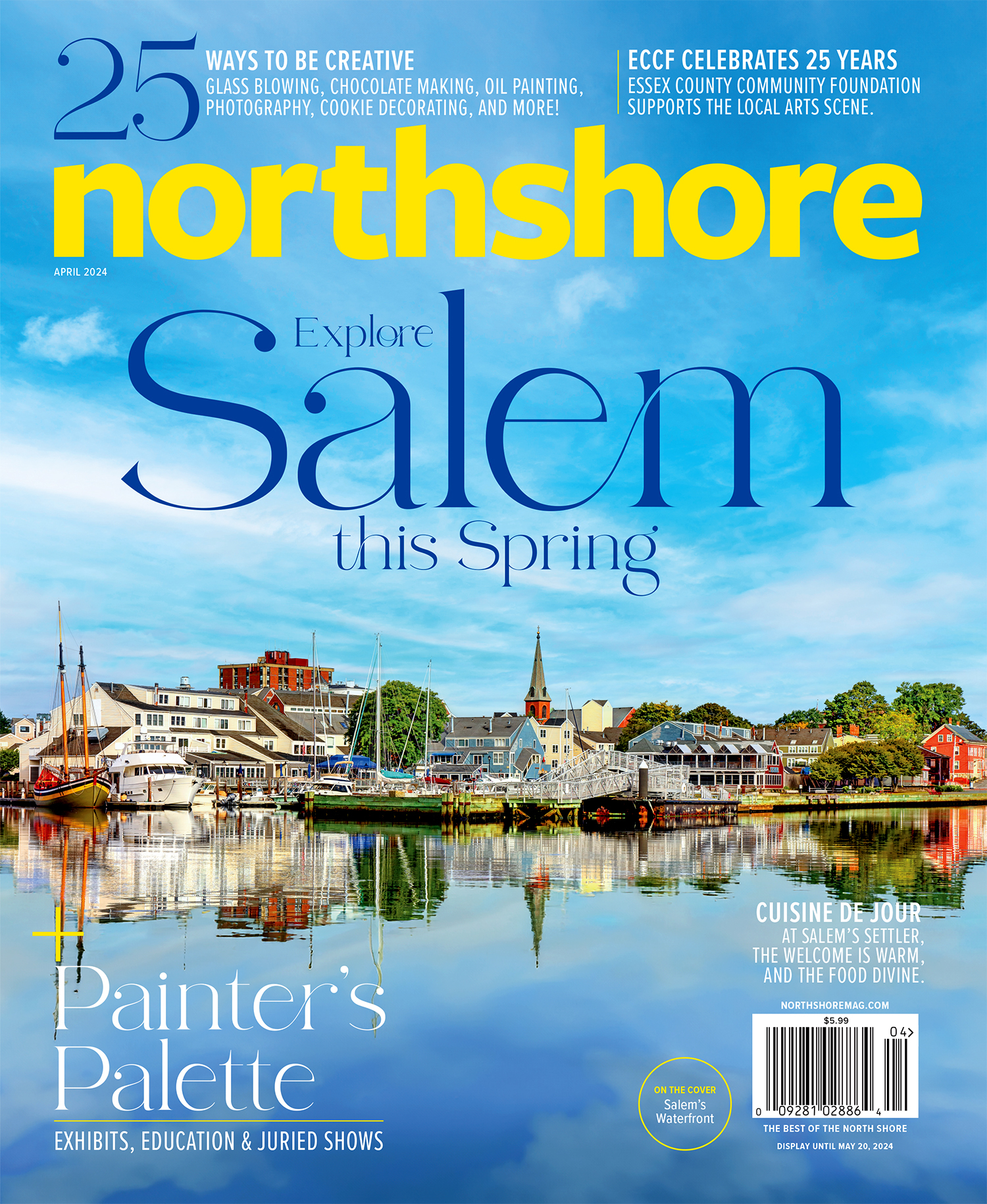America’s first poet in the New World settled in what is now North Andover. Bradstreet’s first book of poetry was published anonymously in England, for to write as a woman was contrary to the Puritan code. Anyone who did was scorned and branded a risk to society. But she created a canon of verse and other writings that shed light on early America and on her own extraordinary life.
Andover’s Susan Lenoe adopts Bradstreet’s persona, playing the courageous poet in performances throughout New England.
NS: Mistress Bradstreet, how are you able to write poetry in a society that is hostile to the imagination and especially to women who show it?
AB: When I wrote, it was at night. I didn’t write in front of others. I had eight children. So often I was up in the middle of the night. I would write by candlelight. In a way, you could say it was my own secret. I wrote about it: I am obnoxious to each carping tongue who says my hand a needle better fits.
NS: How did your poetry get published?
AB: People would assume that a man wrote it. My brother-in-law, without my knowing it, took many of my poems back to England and had them published in 1650.
NS. Was your name on the book?
AB: Actually my name was not on it, which was rather fortunate. It was by a Gentlewoman in those parts.
NS. How did your father, Thomas Dudley, inspire and encourage your writing?
AB: My father wrote poetry himself. He exposed me to Spenser, Virgil, and others. He took a special interest in me and helped educate me. As much as imagination, he believed in learning. When finally we settled in Andover [now North Andover], we had a library of 800 books, which we shared with friends.
NS. Was it a challenge to leave your safe, aristocratic life in England for the sake of religious freedom?
AB: I loved my life. We lived in the castles of Lincolnshire. In the New World, life was dreadful. We arrived in June 1630 in Salem. It was so
unbelievably different. But we came here by the will of God.
NS. Some of your poetry reflects doubt about the Puritan code and, if I might say, doubt in your religious beliefs. Are you a skeptic?
AB: Life is so full of cares and troubles. We’re all humans and we will die. Yes, I have my doubts.
NS. Still, a confidence shines through your writings.
AB: I’ve been caring for my daughter-in-law and her children. This has been one of the most intense and sad times of my life. She has lost three children, and she is with child again. My granddaughter, who was named after me, when she was three years seven months, grew sick and died. Another baby boy, not even a year old, got sick and died. That makes me know that God is my only resource.
NS. Simon, your husband, brought much joy to your life.
AB: He came to the castle in England. He was 10 years older than I. He was a part of my life, a great friend, and like a brother. When I became a young woman, I found my heart more carnal and setting loose from God. Vanities and the follies of youth took hold of me. But then I became ill and near death with the pox. I was fifteen. I felt the Lord laid his hand on me and smote me with the smallpox. In my affliction, I besought the Lord, confessed my pride and vanity, and He forgave me and restored me to health. And then a year later I
married Simon Bradstreet. I was sixteen years old.
NS. And overall, were you happy?
AB: I count my eight children my greatest blessing who all survived into adulthood.

